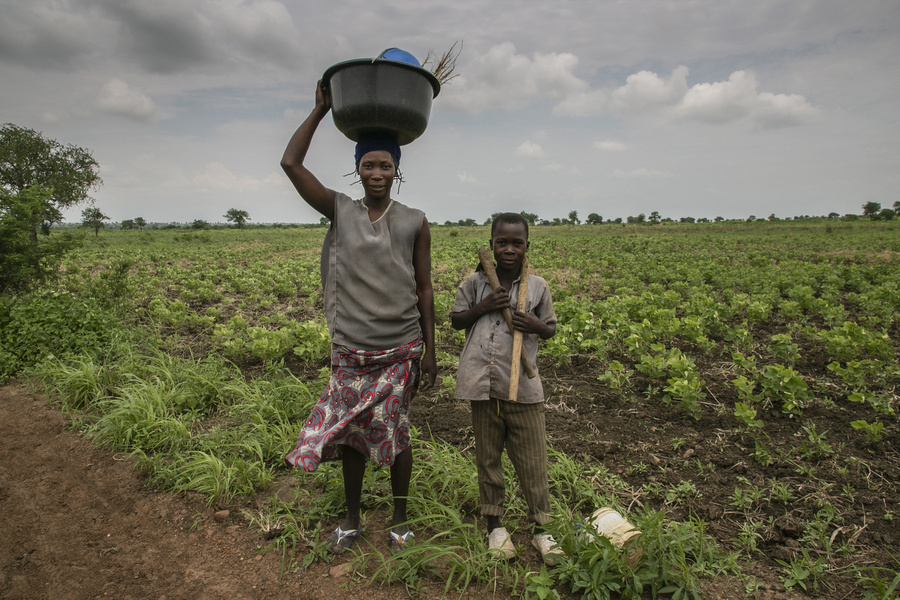
Food insecurity may have different impacts on migrants or displaced populations according to their sex or gender.

Food insecurity and gender inequalities are closely linked, with food insecurity having different impacts on migrants or displaced populations according to their sex or gender (UNHCR, 2022; Care, 2020; Care, 2022; FAO, 2022; WFP, 2022).
Globally, food insecurity disproportionately affects women (WFP, 2023). While women produce between 60 to 80 per cent of the food in most developing countries and are responsible for half of the world’s food production, they have nearly a 27 per cent higher chance of being severely food insecure than men (WFP, 2022).
After increasing in the wake of the pandemic, as women were disproportionately impacted by work and income losses and took on more additional, unpaid caregiving responsibilities, especially in rural areas, the global gender gap in food insecurity decreased between 2021 and 2022 from 3.8 percentage points to 2.4 percentage points (WFP, 2023).
#DidYouKnow? Climate change may put hundreds of millions more women and girls at risk of poverty and food insecurity.
In a worst-case climate scenario, by 2050, 158.3 million more women and girls may be living in poverty due to climate change, outnumbering men and boys by 16 million. Additionally, 236 million more women and girls may experience food insecurity, compared to 131 million more men and boy (UN WOMEN & UN DESA, 2023).
Source: UN WOMEN & UN DESA, 2023.
Disclaimer: This webpage curates public information and data. The opinions expressed in this webpage are those of the authors and do not necessarily reflect the views of the International Organization for Migration (IOM), nor its Member States and other stakeholders. The designations employed and the presentation of material throughout the webpage do not imply expression of any opinion or endorsement whatsoever on the part of IOM, its Member States and other stakeholders concerning the legal status of any country, territory, city or area, or of its authorities, or concerning its frontiers or boundaries. While the portal section "Food security" has been made possible with funding from the German Federal Foreign Office and the Federal Department of Foreign Affairs (FDFA) Switzerland, the contents on this section do not necessarily reflect their official policy or position.
